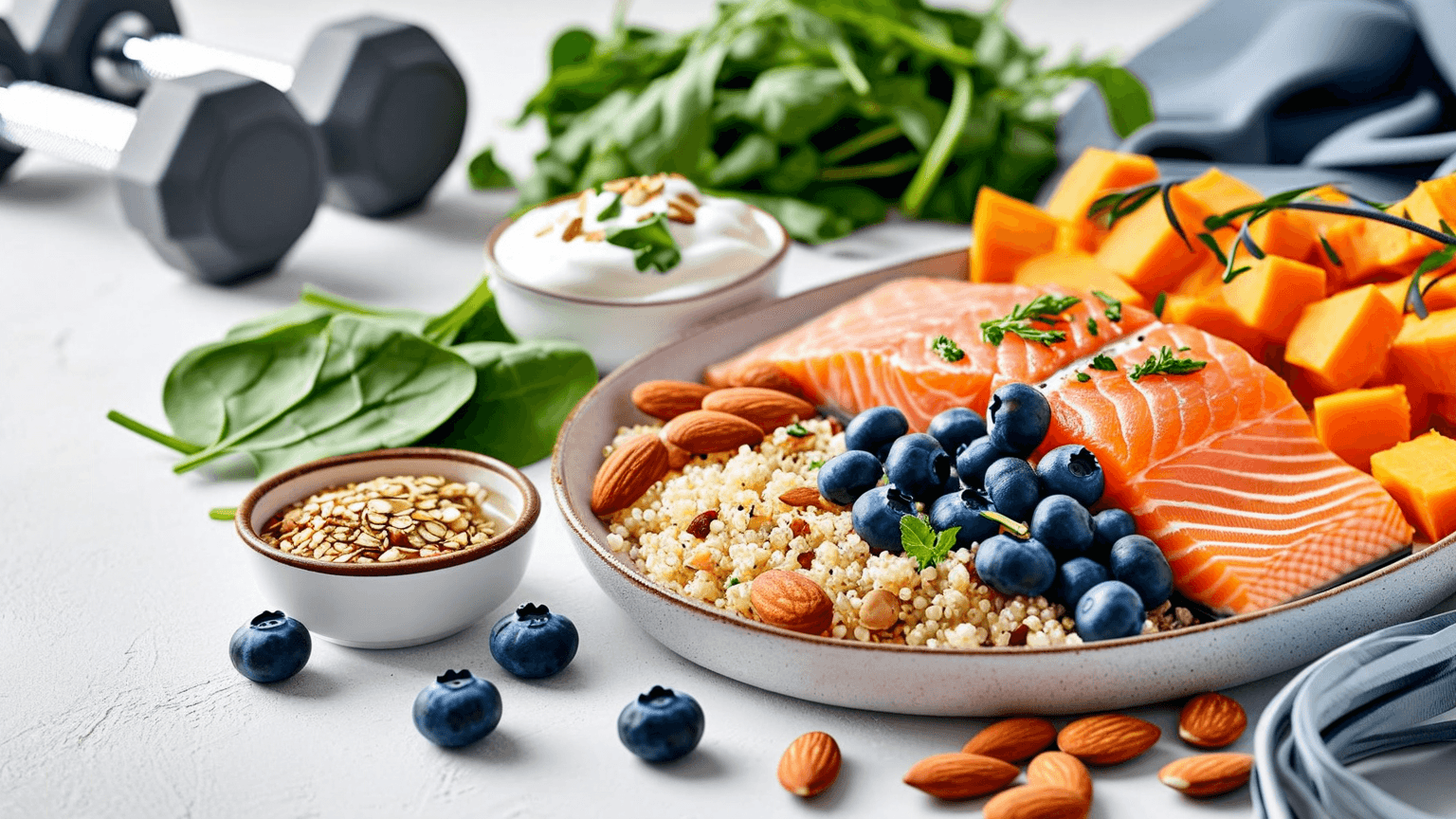Ever wonder why some people seem to have endless energy while you're crashing by 3 PM? The answer isn't another cup of coffee or an expensive energy drink. It's hiding in the fundamental nutrition principles that 78% of beginners completely overlook when they start their health journey.
Most people dive into complex diet plans, exotic superfoods, or restrictive eating patterns without mastering the basics. This approach sets them up for failure, frustration, and that familiar cycle of starting strong only to quit within weeks. The truth is, sustainable energy and vibrant health come from understanding and applying simple, proven nutrition fundamentals that work with your body, not against it.
Why Most Beginner Nutrition Advice Falls Short
The nutrition industry loves to overcomplicate things. Walk into any bookstore and you'll find hundreds of diet books promising miraculous transformations through complex meal plans, expensive supplements, and rigid rules that require a PhD in nutrition to understand.
Here's what actually happens when beginners follow this advice: they get overwhelmed, make unsustainable changes, and eventually give up. Research shows that 92% of people who start restrictive diets abandon them within 6 months. The problem isn't willpower; it's approach.
Effective nutrition for beginners focuses on building sustainable habits, not following perfect meal plans. It's about understanding how food affects your energy, mood, and overall well-being, then making gradual changes that stick. When you master these fundamentals, you create a foundation for lifelong health that doesn't require constant willpower or restriction.
The most successful people start with basic principles: eating enough protein, staying hydrated, choosing whole foods over processed ones, and timing their meals for steady energy. These simple strategies deliver better results than any complicated diet because they're sustainable and work with your natural biology.
The Energy Foundation: Balancing Your Macronutrients
Your body runs on three main fuel sources: carbohydrates, proteins, and fats. Think of them as different types of fuel for your energy engine. Carbohydrates provide quick energy, proteins build and repair tissues while providing steady fuel, and fats offer long-lasting energy and help absorb essential vitamins.
Most beginners make the mistake of drastically cutting one macronutrient, usually carbohydrates or fats. This creates energy imbalances that lead to cravings, mood swings, and that dreaded afternoon crash. Instead, aim for a balanced approach: 45-65% of calories from carbohydrates, 10-35% from protein, and 20-35% from healthy fats.
Here's how to apply this practically: fill half your plate with vegetables and fruits (carbohydrates), one quarter with lean protein like chicken, fish, beans, or tofu, and one quarter with whole grains or starchy vegetables. Add a thumb-sized portion of healthy fats like avocado, nuts, or olive oil. This simple plate method ensures balanced nutrition without counting calories or measuring portions obsessively.
Pay attention to how different combinations make you feel. Some people thrive with slightly more protein and fewer carbs, while others need more carbohydrates for optimal energy. The key is finding your personal balance through experimentation and listening to your body's signals.
Hydration: The Most Overlooked Energy Booster
Before you blame your fatigue on poor sleep or stress, check your hydration status. Even mild dehydration of just 2% can reduce energy levels by up to 23% and impair cognitive function. Yet most people walk around chronically dehydrated without realizing it.
Your body is roughly 60% water, and every cellular process depends on adequate hydration. When you're dehydrated, your blood volume decreases, making your heart work harder to pump oxygen and nutrients to your cells. This extra effort leaves you feeling tired, foggy, and sluggish.
The old "8 glasses a day" rule is outdated and doesn't account for individual needs. A better approach: drink half your body weight in ounces daily, plus extra for exercise, hot weather, or caffeine consumption. If you weigh 160 pounds, aim for 80 ounces of water throughout the day.
Make hydration effortless by keeping a water bottle visible, drinking a glass when you wake up, and having water with each meal. Add natural flavor with lemon, cucumber, or mint if plain water feels boring. Monitor your urine color as a hydration gauge: pale yellow indicates good hydration, while dark yellow suggests you need more fluids.
Timing Your Meals for Steady Energy
When you eat matters almost as much as what you eat. Your body thrives on consistency, and irregular eating patterns can wreak havoc on your energy levels, blood sugar, and metabolism. Most beginners either skip meals entirely or eat large, infrequent meals that cause energy spikes and crashes.
The optimal eating pattern for steady energy involves eating every 3-4 hours, starting with a protein-rich breakfast within 2 hours of waking. This approach keeps your blood sugar stable, prevents excessive hunger that leads to poor food choices, and maintains consistent energy throughout the day.
Structure your day like this: breakfast by 9 AM, mid-morning snack if needed, lunch between 12-1 PM, afternoon snack around 3-4 PM, and dinner by 7 PM. Each meal should combine protein, healthy carbohydrates, and a small amount of fat to slow digestion and provide sustained energy.
Listen to your hunger cues rather than eating by the clock alone. True hunger develops gradually and can be satisfied with various foods, while cravings come on suddenly and demand specific foods. Learning this distinction helps you eat when your body needs fuel rather than responding to emotions, boredom, or external triggers.
Choosing Whole Foods Over Processed Options
The difference between whole foods and processed foods isn't just about health; it's about how your body processes and uses energy. Whole foods require more energy to digest, provide steady fuel release, and contain the nutrients your body needs to function optimally. Processed foods offer quick energy followed by crashes and often leave you hungrier than before.
Whole foods include anything that looks similar to its natural state: fresh fruits and vegetables, whole grains, lean meats, fish, eggs, nuts, seeds, and legumes. These foods contain fiber, vitamins, minerals, and phytonutrients that work together to nourish your body and maintain stable energy levels.
Start by making simple swaps: choose brown rice over white rice, whole grain bread over white bread, fresh fruit over fruit juice, and nuts over chips. You don't need to eliminate all processed foods immediately; instead, aim for the 80/20 rule where 80% of your choices come from whole foods and 20% can be more flexible.
When you do choose processed foods, read labels carefully. Look for products with fewer than 5 ingredients, minimal added sugars, and ingredients you can pronounce. The closer a food is to its natural state, the better it will serve your energy and health goals.
Building Your Beginner Meal Planning Strategy
Meal planning intimidates many beginners, but it doesn't require elaborate prep sessions or cooking skills worthy of a chef. Effective meal planning is about creating a flexible framework that ensures you have nourishing options available when hunger strikes, preventing those moments when you grab whatever's convenient.
Start with batch cooking one or two proteins each week, such as grilled chicken, baked salmon, or cooked beans. Prepare a large batch of whole grains like quinoa or brown rice, and wash and chop vegetables when you bring them home from the store. These simple steps create building blocks for quick, healthy meals throughout the week.
Keep your meal planning simple with theme nights: Meatless Monday, Taco Tuesday, or Stir-fry Friday. This approach reduces decision fatigue while ensuring variety. Stock your pantry with staples like canned beans, whole grain pasta, frozen vegetables, nuts, and healthy oils so you can always create a nutritious meal.
Prepare for obstacles by having backup plans. Keep healthy frozen meals for busy nights, stock portable snacks like nuts and fruit for unexpected hunger, and identify a few go-to restaurants with healthy options. The goal isn't perfection; it's consistency and having good choices readily available.
Common Beginner Mistakes That Sabotage Success
The biggest mistake beginners make is trying to change everything at once. This all-or-nothing approach leads to overwhelm, unsustainable habits, and eventual burnout. Your brain can only handle so much change at one time, and attempting dramatic transformations usually results in reverting to old patterns within weeks.
Another common pitfall is focusing on restriction rather than addition. Instead of eliminating foods, focus on adding nutritious options to your meals. Add vegetables to your pasta, include protein in your snacks, or drink water before reaching for other beverages. This positive approach feels more sustainable and naturally crowds out less healthy choices.
Many beginners also fall into the comparison trap, measuring their progress against others or expecting immediate results. Sustainable nutrition changes take time to show effects, and everyone's journey looks different. Focus on how you feel rather than just how you look, and celebrate small victories like having more energy or sleeping better.
Perfectionism kills more nutrition goals than any other factor. You don't need to eat perfectly to see significant improvements in your health and energy. Aim for progress, not perfection, and remember that one imperfect meal doesn't ruin your efforts any more than one healthy meal creates optimal health.
Simple Strategies for Sustained Energy Throughout the Day
Maintaining steady energy requires understanding how different foods affect your blood sugar and energy levels. Foods high in refined sugars and simple carbohydrates cause rapid spikes followed by crashes, while complex carbohydrates paired with protein and healthy fats provide sustained fuel.
Start your day with a protein-rich breakfast that includes some healthy fats and complex carbohydrates. Examples include Greek yogurt with berries and nuts, eggs with whole grain toast and avocado, or oatmeal topped with protein powder and almond butter. This combination provides immediate energy while preventing mid-morning crashes.
Combat the afternoon energy dip with strategic snacking. Choose combinations like apple slices with almond butter, hummus with vegetables, or a small handful of nuts with dried fruit. These snacks provide quick energy from carbohydrates while the protein and fat slow absorption for sustained fuel.
Pay attention to caffeine timing and consumption. While moderate caffeine can enhance energy and focus, consuming it too late in the day disrupts sleep quality, creating a cycle of fatigue and dependence. Limit caffeine to morning hours and don't exceed 400mg daily (about 4 cups of coffee).
Frequently Asked Questions About Beginner Nutrition
How long does it take to see results from better nutrition? Most people notice improved energy levels within 1-2 weeks of consistent healthy eating. Physical changes like weight loss or improved body composition typically become noticeable after 4-6 weeks, while more significant health markers may take 2-3 months to improve.
Do I need to count calories as a beginner? Calorie counting isn't necessary for most beginners and can create an unhealthy relationship with food. Focus on eating whole foods, listening to hunger cues, and using portion control methods like the plate method. If weight loss is a goal, creating a moderate calorie deficit through food choices and physical activity is more sustainable than strict counting.
What should I do if I have food cravings? Cravings often indicate imbalanced blood sugar, dehydration, or emotional triggers. First, drink water and wait 10 minutes. If you're still hungry, choose a balanced snack with protein and fiber. Address emotional eating by identifying triggers and finding non-food coping strategies like walking, calling a friend, or practicing deep breathing.
How do I eat healthy on a tight budget? Focus on affordable whole foods like beans, lentils, eggs, frozen vegetables, seasonal produce, and whole grains bought in bulk. Cook at home more often, plan meals around sales, and use cheaper protein sources like canned fish, chicken thighs, and plant-based options. Frozen fruits and vegetables are just as nutritious as fresh and often more affordable.
Should I take supplements as a beginner? Most beginners can meet their nutritional needs through food alone. However, a basic multivitamin can serve as insurance against nutrient gaps. Vitamin D and omega-3 fatty acids are commonly deficient nutrients that may benefit from supplementation. Always consult with a healthcare provider before starting any supplement regimen.
How do I stay motivated when progress feels slow? Focus on non-scale victories like improved energy, better sleep, clearer skin, or enhanced mood. Keep a food and energy journal to track patterns and progress. Remember that sustainable changes take time, and small consistent actions compound over weeks and months. Celebrate every healthy choice rather than waiting for dramatic transformations.
Your Next Steps to Nutritional Success
Transforming your nutrition doesn't require perfection or dramatic overnight changes. It requires consistency, patience, and a willingness to learn what works best for your unique body and lifestyle. The strategies outlined here provide a solid foundation, but your journey will be personal and evolving.
Start with one or two changes that feel manageable and sustainable. Perhaps it's drinking more water, adding protein to your breakfast, or planning one healthy meal each day. Master these basics before adding complexity, and remember that small changes compound into significant results over time.
Track your progress through how you feel rather than just how you look. Notice improvements in energy levels, sleep quality, mood stability, and overall well-being. These markers often improve before physical changes become visible and provide powerful motivation to continue your healthy habits.
Remember that setbacks are part of the process, not signs of failure. Every expert was once a beginner, and every healthy person has had days when their nutrition wasn't perfect. What matters is getting back on track quickly and learning from each experience. Your future self will thank you for starting this journey today, one healthy choice at a time.
Related Topics
Explore more superfood insights and nutrition guidance.



